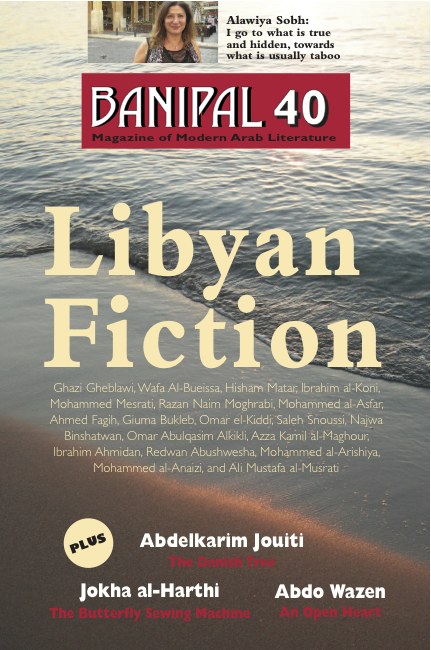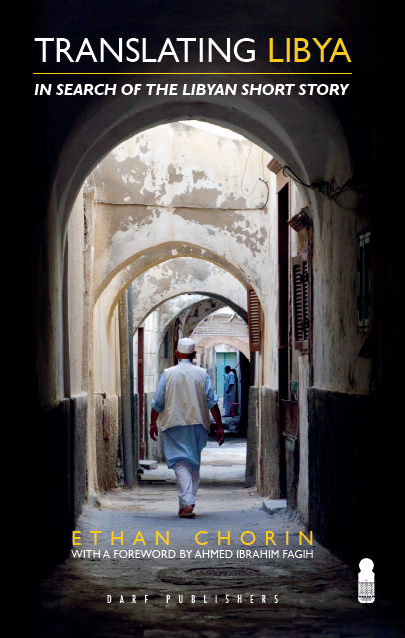The short story “A Season of Stories” by the Libyan writer Khalifa Al-Fakhri (1942–2001) appears in Michigan Quarterly Review’s December 2021 issue, translated from the Arabic by Khaled Mattawa.
Tag Archives: translation
Ahmed Shawqi’s Elegy for Omar al-Mukhtar
Omar al-Mukhtar, the leader of the Libyan resistance to the Italian colonial forces was executed in Sullug outside of Benghazi by the Italians on this day 89 years ago— September 16, 1931—after having finally been captured a few days before. Below is the photograph from the time of his detention prior to execution that has now become iconic. By the early 1930s the Libyan resistance, although increasingly unable to hold back the Italian advances, had become known around the Arab world and Omar al-Mukhtar had become a symbol of resistance to colonialism in the Middle East more generally. His execution prompted the famous Egyptian poet Ahmed Shawqi (1868-1932), the “Prince of Poets” (أمير الشعراء) to write an elegy (رثاء) in his honor, written not long before Shawqi himself passed away in Cairo. (A clear recitation is here for those who’d prefer to listen to it being read aloud.)
By the early 1930s the Libyan resistance, although increasingly unable to hold back the Italian advances, had become known around the Arab world and Omar al-Mukhtar had become a symbol of resistance to colonialism in the Middle East more generally. His execution prompted the famous Egyptian poet Ahmed Shawqi (1868-1932), the “Prince of Poets” (أمير الشعراء) to write an elegy (رثاء) in his honor, written not long before Shawqi himself passed away in Cairo. (A clear recitation is here for those who’d prefer to listen to it being read aloud.)
Libyan Fiction – Banipal Magazine
 Banipal, the UK-based magazine of modern Arabic literature in English translation, published an issue dedicated to Libyan Fiction back in 2011. The print edition is reasonably priced and well worth having, but issue 40 also happens to be available online at Banipal’s website! You can read every piece of Libyan fiction in the issue for free. Together with the recent second edition of Ethan Chorin’s Translating Libya (see here), it represents the best and most recent collection of Libyan literature in English translation, and both are absolutely essential introductions to many of today’s important writers.
Banipal, the UK-based magazine of modern Arabic literature in English translation, published an issue dedicated to Libyan Fiction back in 2011. The print edition is reasonably priced and well worth having, but issue 40 also happens to be available online at Banipal’s website! You can read every piece of Libyan fiction in the issue for free. Together with the recent second edition of Ethan Chorin’s Translating Libya (see here), it represents the best and most recent collection of Libyan literature in English translation, and both are absolutely essential introductions to many of today’s important writers.
From the editor’s description of the issue:
“What an amazing coincidence that [Banipal’s 40th issue] should be dedicated to the celebration of Libyan literature at such an extraordinary historical moment in the Arab world when the region is witnessing a chain of uprisings and revolutions against dictatorial and corrupt regimes in Tunisia, Egypt, Bahrain, Yemen and, finally, Libya.
We at Banipal are very proud of this special issue on Libyan fiction, and with it announce our absolute solidarity with the Libyan people in their aspiration to democratic rule and the exercising of all their rights, the first of which are to express their thoughts and the abolition of all forms of censorship on audio-visual media and literature.
When I met by chance the veteran Libyan writer Ali Mustafa al-Musrati, one evening at the Greek Club in Cairo, February 2007 (at this time exactly), I said to him: “I’m extremely saddened by the neglect of Libyan literature in the Arab world and by the ignorance of the West.” I promised him that Banipal would publish a special feature on the wonderful literature of Libya. And how happy we are to fulfil this promise at this time in particular…”
The Libyan authors whose work appears are (in no particular order): Ghazi Gheblawi, Wafa al-Bueissa, Hisham Matar, Ibrahim al-Koni, Mohammed Mesrati, Razan Naim Moghrabi, Mohammed al-Asfar, Ahmed Fagih, Giuma Bukleb, Omar el-Kiddi, Saleh Snoussi, Najwa Binshatwan, Omar Abulqasim Alkikli, Azza Kamil al-Maghour, Ibrahim Ahmidan, Redwan Abushwesha, Mohammed al-Arishiya, Mohammed al-Anaizi. There is also profile on Ali Mustafa al-Musrati.
Book: Translating Libya
 Darf Publishers has just released the second edition of Translating Libya, a collection of short stories by Libyan authors selected and translated from Arabic by Ethan Chorin. The first edition was published in 2008 with Saqi Publishers at a time when there existed essentially no Libyan literature in English or other European languages. Since then, two things have happened: the book has become hard to find, and Darf Publishers have begun to publish Libyan literature in translation. It is thus perfectly appropriate that these two things come together and that a new edition of Translating Libya appears with Darf.
Darf Publishers has just released the second edition of Translating Libya, a collection of short stories by Libyan authors selected and translated from Arabic by Ethan Chorin. The first edition was published in 2008 with Saqi Publishers at a time when there existed essentially no Libyan literature in English or other European languages. Since then, two things have happened: the book has become hard to find, and Darf Publishers have begun to publish Libyan literature in translation. It is thus perfectly appropriate that these two things come together and that a new edition of Translating Libya appears with Darf.
‘The immediate idea for the book came from a desire to get deeper into Libyan culture, which seemed to hold the foreigner at a distance. I was curious about the local literature—was there any, to speak of? What made this vast, lightly populated country, tick? All of this gradually led me into a world, not simply of ‘stories’, but of stories crafted to communicate in an environment in which one could not communicate, at least not in obvious, blatant ways—lest one face consequences.’
Order it directly from Darf Publishers, or your nearest bookstore.
Update! Read here a recent interview with author Ahmed Fagih about the book.